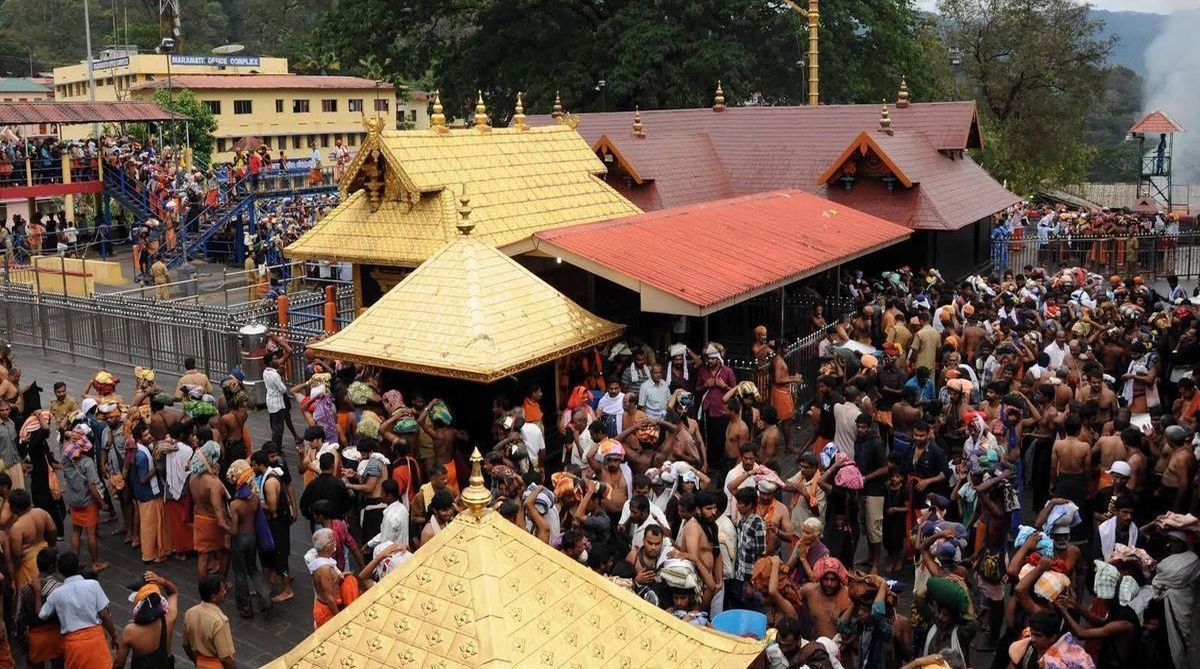The recent judgment of the Hon’ble Supreme Court in Sabarimala case is facing criticism from devotees. Many claim that it hurts the sentiments of a large section of devotees including women. Two petitions for review have already been filed. The judgment is critiqued as being destructive of religious faith and belief. No doubt there is widespread adverse opinion against the judgement, but these are not sufficient to take away the sanctity of it.
We are not born with belief and faith. Our belief is cultured, taught and dependent on the pool of information in which we are brought up. It is obvious that orthodox devotees feel the judgment is unjust. Just is not what we think to be just, but what we believe to be just, it is the sense of being just. The idea of Justice will never become clear unless the sense of injustice is developed. Justice is dependant on injustice for its existence.
Advertisement
Society had always been ruled by the power of interpretation. In primitive societies power to make law and power of interpretation was in a single hand. In modern societies, following the concept of distribution, and separation of power, judiciary is the institutional system that interprets and applies law, and such power of interpretation is sanctioned under the authority of law. As a dispute resolution system, the judiciary does not make law, it has been entrusted with the job of interpretation and its immediate application in the facts of each case. It is the institutional system for delivery of Justice, a system that has authority under law to go to any extent if Justice demands.
Socrates confronted the idea of justice by asking Cephauls, ‘Justice, what is it?- to speak the truth and to pay your debts – no more than this?’ and then correctly said ‘speaking truth and paying your debt is not a correct definition of justice,’ at the same time it was not agreeable to him that justice is obedience to the command of the ruler. Since the time of Socrates, the notion of justice has changed a lot.
We treated women as a commodity, we kept slaves, we followed the sacred ceremony of Sati, not because we deviated but we felt it to be just. The question is if it was so just, why did we stop? What made us feel bad? It is the transformation of justice into injustice and the common acceptance of the conversion. The sense of being just is dynamic, so is Justice. The social sense of Justice, for obvious reason, deviates from Justice in accordance with law. This plays a crucial role in the making of a judicial decision.
Sabarimala judgement does not interfere with the personal belief of the devotees, it hammers the public exercise of personal belief. It should be remembered the Sabarimala temple is now a public temple. Personal belief can be unrestricted, but when such belief is exercised publicly there must be check and balance because then it does not remain personal at all.
Supreme Court judgement does not force an unwilling woman devotee to visit the temple against her will, it only opens up the doors to willing women. There is no reason to cling to our belief blindly all the time. Recently we have seen a politician from Rajasthan who believes urinating in public is our ‘age old tradition’. This belief does not create any problem unless it is exercised in public. Our Constitution is sharp enough to cut such belief into pieces.
No doubt mere belief and faith cannot be the subject matter of judicial decision, but public exercise of such faith and belief can always be. The Supreme Court rightly decided that discriminating against women even on the ground of religion is unconstitutional. Supreme Court is under obligation of upholding constitutional values. While the Constitution is the supreme law of the land, its source of power is the people. It is ‘we the people’ ‘enact and adopt for ourselves’. While all other institutions, directly or indirectly, get their power from the Constitution, the Constitution derives its power from the people. This is an interesting legal paradox, the Constitution is above all, every citizen is bound by it individually, but collectively supremacy lies with the people.
The Court of Law, while implementing the law, only considers the majority intention held by the legislatures because texts of statues are nothing but accumulation of majority view. Therefore, the decision of the Supreme Court in Sabarimala case is also the reflection of the majority view of Indian democracy and the agitation against this judgement is a trailing minority view. However, just and unjust remain interchangeable because today’s minority view may become tomorrow’s majority view. In the present context, Sabarimala judgment is justice defined.
The writer is Civil Judge, 1st court, Howrah and a P.hD research fellow at the OP Jindal Global University.











